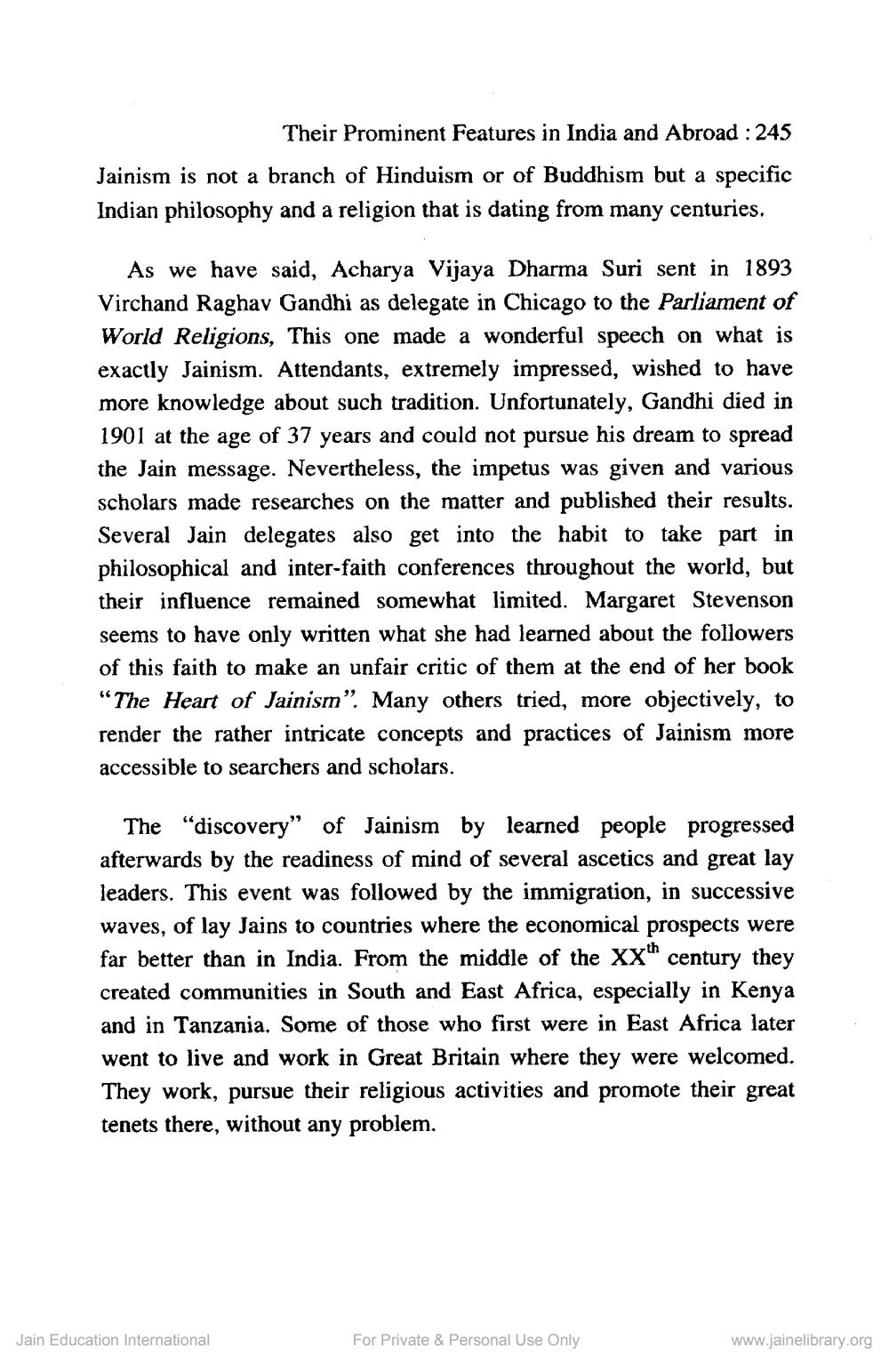________________
Their Prominent Features in India and Abroad : 245 Jainism is not a branch of Hinduism or of Buddhism but a specific Indian philosophy and a religion that is dating from many centuries.
As we have said, Acharya Vijaya Dharma Suri sent in 1893 Virchand Raghav Gandhi as delegate in Chicago to the Parliament of World Religions, This one made a wonderful speech on what is exactly Jainism. Attendants, extremely impressed, wished to have more knowledge about such tradition. Unfortunately, Gandhi died in 1901 at the age of 37 years and could not pursue his dream to spread the Jain message. Nevertheless, the impetus was given and various scholars made researches on the matter and published their results. Several Jain delegates also get into the habit to take part in philosophical and inter-faith conferences throughout the world, but their influence remained somewhat limited. Margaret Stevenson seems to have only written what she had learned about the followers of this faith to make an unfair critic of them at the end of her book "The Heart of Jainism". Many others tried, more objectively, to render the rather intricate concepts and practices of Jainism more accessible to searchers and scholars.
The "discovery" of Jainism by learned people progressed afterwards by the readiness of mind of several ascetics and great lay leaders. This event was followed by the immigration, in successive waves, of lay Jains to countries where the economical prospects were far better than in India. From the middle of the XX century they created communities in South and East Africa, especially in Kenya and in Tanzania. Some of those who first were in East Africa later went to live and work in Great Britain where they were welcomed. They work, pursue their religious activities and promote their great tenets there, without any problem,
Jain Education International
For Private & Personal Use Only
www.jainelibrary.org




